Advocating for Yourself: My Epilepsy Journey
My name is Natalie, and I’ve been working with the Grand Rapids LGBTQ+ Healthcare Consortium since September 2024 as the Program Coordinator. Today is my last day with the Consortium — and since November is Epilepsy Awareness Month, I wanted to take this opportunity to share my own epilepsy journey.
When I was about 14 or 15, I started having seizures — though at the time, no one knew that’s what they were. It took nearly two years before I received a proper diagnosis.
Every single seizure was the same: I would put my hands around my throat and start making a choking noise. I never had the convulsions most people imagine when they hear the word “seizure.” Because of that, my episodes didn’t look like the “typical” kind you see in movies or on TV, which made it harder for my friends and my mom to understand what was happening — but it shouldn’t have been hard for a doctor to recognize.
One night, I was having a sleepover with a friend when she woke up because I was choking. She said I sat up, put my hands around my throat, and started making that same strange noise. She tried to wake me, but I wouldn’t respond. She ran to get my mom, and by the time they returned, the episode had stopped.
My mom took me to my pediatrician and explained what happened. Neither of us can remember exactly what was said at that appointment, but no treatment was recommended. Since it happened at night, the doctor referred us to a sleep clinic.
The sleep specialists asked my mom to try to capture one of the episodes on video. So she started sleeping next to me, and whenever I’d have an episode, she’d grab her phone and try to record it. Of course, it was the middle of the night and she was half asleep — so she was never able to get a clear video. She was convinced they were seizures, but the clinic wasn’t sure and ordered a sleep study.
During the sleep study, I had another episode. The sleep doctor, however, did not recognize it as a seizure. Instead, he diagnosed me with sleep apnea, despite my mom’s concerns. I was prescribed a CPAP machine, but because it was a misdiagnosis, the episodes didn’t stop.
At that time, I also wasn’t getting good sleep — because, as we later learned, I was having seizures almost every night. I was exhausted, confused, and frustrated, and no one could tell us why. It was an incredibly difficult time. The seizures kept happening night after night while my mom was repeatedly told it was just sleep apnea.
When I was 17, I started having seizures during the day. The same thing would happen, but now I was awake beforehand. The first daytime seizure happened at school. A group of kids helped me to the office, where the staff called my mom. (I have no memory of this — I was in class one minute, and the next, I was in the front office with my mom sitting next to me asking if I was okay.) She came to pick me up and took me straight to the pediatrician.
On the way, I had another seizure in the car. Then, once we got to the doctor’s office, I had yet another one — right in front of him. He immediately said, “That’s a seizure.” Finally, I was referred to a neurologist.
After an EEG and a hospital stay, I was officially diagnosed with focal epilepsy. I had been having left temporal lobe focal seizures every single night for nearly two years. The neurologists couldn’t believe the sleep doctor had thought it was sleep apnea — to them, it was clearly a seizure disorder.
They started me on medication, and since the day I was diagnosed, I haven’t had a seizure.
I’m 28 now and have been seizure-free for over 11 years. While I still experience a few side effects, epilepsy does not define my daily life.
If there’s one thing I’ve learned from my journey, it’s this: always advocate for yourself.
At the time, I couldn’t — I was under 18 and had no memory of my seizures. My mom did everything she could, even when she was told over and over that she was wrong. She knew something wasn’t right and never stopped pushing for answers.
Your doctor may be an expert, but you are the expert on your own body. Don’t be afraid to speak up, ask questions, or seek a second opinion. You deserve to be heard, believed, and cared for.
